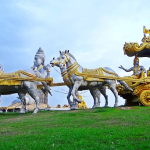Some interesting points by Ashley J. Tellis, who is an influential US foreign affairs expert and currently senior associate at Carnegie Endowment for International Peace – on Pakistan, Afghanistan, US and India scenario.
He says that it is Pakistan’s Afghanistan policy to support the Taliban. He goes further and discusses things in more detail on more topics.. take a look.
On the Civil and Military stand off
the present civil-military standoff actually was a long time coming. Right from the time of the Raymond Davis affair (the killing by a CIA official of two Pakistani armed men in Lahore on January 27, 2011), the divide between the civilians and the military began to grow ever deeper. It always existed, but the Davis episode, the Osama raid, and now Memogate, have only highlighted the fact that the two “executive” arms of the Pakistani state reside on different planets.
At its core, the divide is explained simply: the civilian government wants to transform Pakistan into a developmental state, wrest political supremacy away from the military and reach a new modus vivendi with Pakistan’s neighbours; the military, in contrast, wants to preserve Pakistan as a garrison state, protect its institutional and economic privileges and sustain a competitive relationship with Afghanistan and India, thereby justifying its continued supremacy in Pakistan’s political life.
Pakistan Military and Taliban’s relationship
The Pakistani military has reconciled itself to a representational office for the Taliban, but it still controls the most important levers necessary to shape the Quetta Shura’s (the Quetta-based Afghan Taliban’s top leadership) final decisions in regards to reconciliation: protection from US military action and operational, material, and, to a lesser degree, financial support.
On situation in Afghanistan and how Pak Military is working on it
Whatever happens in regard to Afghanistan will require the consent of the Pakistan Army, and I do not see the Army being decisively weakened because of the current crisis. In fact, it is the civilians who are fighting a rearguard battle to protect their turf — meaning, their all too modest decisional autonomy — which is opposed by an Army and a judiciary that are in cahoots.
On Pakistan Army’s future adventurism
Instability in Pakistan is always bad news for India — but I do not think diversionary military adventures are the biggest danger right now. The Pakistani Army currently has its hands full with problems in the tribal areas and in Balochistan; the situation in Afghanistan is highly uncertain; the US is thoroughly disenchanted with the Pakistani military; and the economy is in crisis.
All told, this is an awful time even for a diversionary military provocation, especially given that none of Pakistan’s previous stunts have ever come out right.














